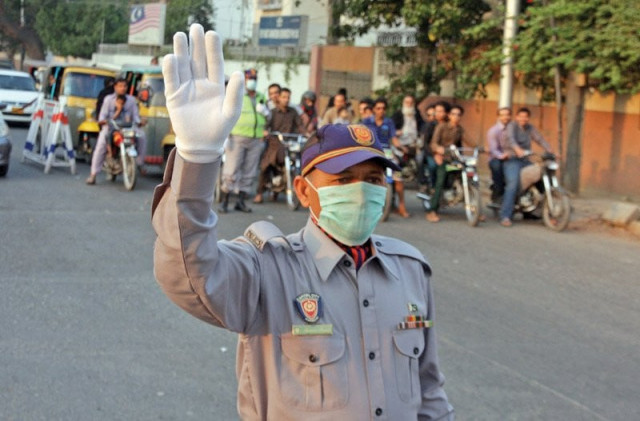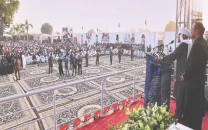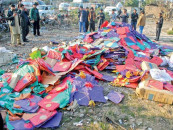Traffic fines spark backlash in Pindi
Daily-wage earners and students bear brunt of new traffic regime

The traffic police's revised fine regime has imposed a heavy strain on the middle classes, with low-paid workers and small shopkeepers - many of whom bought motorcycles on instalments - bearing the brunt of relentless penalties over the past 18 months.
For countless families, the once-affordable motorcycle has now become a source of financial strain.
Some shopkeepers who had adapted their bikes into makeshift mini-loaders or rickshaws to deliver snacks, vermicelli and other home-produced goods to local shops - modest ventures that provided an honest livelihood - have seen their means of income all but eliminated under the clampdown.
According to the official fine schedule, the new penalties are as follows: Rs2,000 for not wearing a helmet; Rs2,000 for parking in a prohibited spot; Rs500 for entering a restricted area; Rs2,000 for carrying three people on a motorcycle; Rs5,000 for wearing a plastic helmet; Rs1,000 for jumping a signal; Rs2,000 for driving the wrong way on a one-way street; and Rs2,000 for driving without a licence.
There is scarcely a motorcyclist in Rawalpindi who does not incur such fines at least twice a month. Students travelling to schools, colleges and universities in the mornings have become particularly frequent targets.
Meanwhile, the city's road conditions remain deplorable. Potholes are ubiquitous, with no authority taking responsibility. Brand-new motorcycles deteriorate within three months of use. Open drains, rainwater pooling in streets, missing manhole covers and daily accidents go unaddressed.
Traffic lights are broken, roadworks left unrepaired, political banners clutter the roads, pavements are obstructed by encroachments, rubbish piles overflow onto streets, and large stretches remain unlit at night. To the public, it increasingly appears that citizens exist only to be fined, while the administration and government remain exempt from accountability. Successive governments, critics argue, have reduced the people's role to paying taxes and traffic penalties.
Ahsan Hameed Lillah, president of the Rawalpindi High Court Bar Association, and Mehran Ijaz Chaudhry, candidate for secretary-general of the Bar, condemned the Rs2,000 fine for motorcycle offences as "oppressive" and argued that penalties should not exceed Rs500. Having lodged complaints with the government without success, they have now resolved to challenge the policy in the Lahore High Court in the wider public interest.
Traffic wardens, for their part, insist they are merely executing orders. They report being instructed to issue at least 50 fines each within 24 hours, directives allegedly conveyed through stern voice messages from senior officers in official WhatsApp groups. Wardens say they are therefore left with no choice but to impose heavy fines.
Asghar Sohail, a self-employed worker who previously delivered snacks made at home using a customised motorbike loader until late at night, explained that his vehicle has now been banned. "If we block the road and inconvenience passers-by, punish us," he said. "But why destroy our livelihoods? We cannot afford to stop working, and we cannot afford taxi-rickshaws for deliveries."

























COMMENTS
Comments are moderated and generally will be posted if they are on-topic and not abusive.
For more information, please see our Comments FAQ